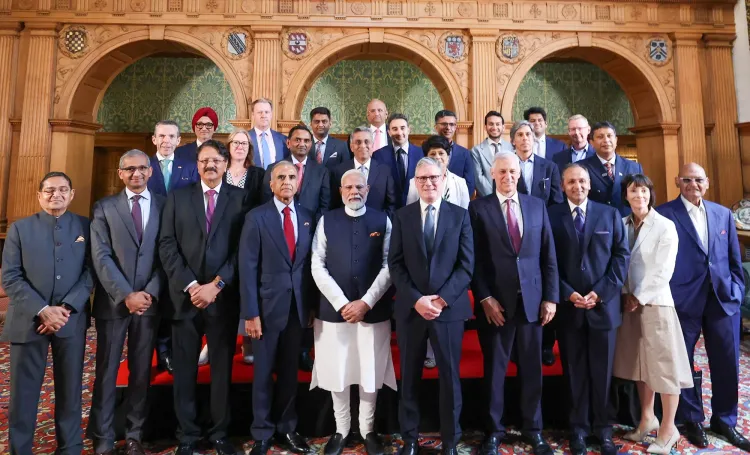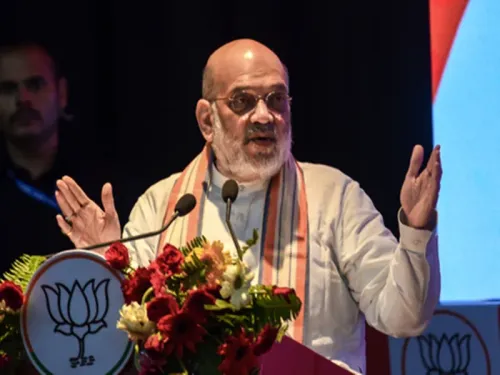Is the India-UK FTA a Transformational Milestone for Inclusive Growth and Trade Integration?

Synopsis
Key Takeaways
- The India-UK FTA is a significant economic milestone.
- Indian exports to the UK are projected to grow substantially.
- Zero-duty access will benefit various sectors, including agriculture and seafood.
- Indian professionals will enjoy significant tax savings.
- The FTA is expected to double engineering exports by 2029–30.
Mumbai, July 25 (NationPress) The Trade Promotion Council of India (TPCI) has praised the India-UK Free Trade Agreement (FTA) as a significant economic achievement, creating transformative opportunities for Indian exporters across essential sectors.
In FY2024–25, India’s total trade with the United Kingdom reached an impressive $23.1 billion, showcasing a continued upward trend fueled by strong export performance. India’s exports surged to $14.5 billion, marking a 12.4 percent increase compared to the previous year, while imports grew modestly by 2.3 percent to $8.6 billion, leading to a record trade surplus of $5.9 billion.
India’s agricultural exports to the UK are set to expand by over 20 percent in the next three years, thanks to the FTA’s zero-duty access on more than 95 percent of Indian agricultural and processed food items — including fruits, vegetables, cereals, coffee, tea, spices, oilseeds, alcobev, and ready-to-eat products.
The seafood sector in India will gain from zero-duty access to the UK’s $5.4 billion marine market, achieving tariff parity with major EU nations like Germany and the Netherlands. This will directly benefit fishermen in states such as Andhra Pradesh, Odisha, Kerala, Gujarat, and Tamil Nadu.
“The signing of the visionary India-UK FTA marks a crucial moment, as it unlocks impressive opportunities for Indian goods and services exporters,” stated Mohit Singla, Chairman of TPCI.
The agreement aligns with the goal of developing and accelerating the establishment of globally recognized Indian brands, paving the way for doubling India’s exports, enhancing rural prosperity, and fostering deeper integration into global value chains.
According to Ashish Kumar Chauhan, MD and CEO of NSE, this pivotal agreement also provides significant relief to Indian professionals in the UK, who will now be exempt from paying up to three years of social security tax — yielding estimated annual savings of ₹4,000 crore.
“The new visa framework also facilitates extended professional stays in the UK. This deal establishes a model for future FTAs with other economies, such as the US, EU, and Japan, eliminating long-standing trade barriers and fostering collaboration in high-tech exports, mobile manufacturing, and semiconductors,” Chauhan noted.
EEPC India has welcomed the signing of the India-UK FTA. The UK, which is India’s 6th largest engineering export destination, saw a robust 11.7 percent growth in trade during 2024–25.
The FTA’s removal of tariffs, which previously reached as high as 18 percent on key engineering products, is anticipated to boost export growth significantly.
EEPC India forecasts that engineering exports to the UK could nearly double to over $7.5 billion by 2029–30.
Pankaj Chadha, Chairman of EEPC India, remarked, "The India–UK FTA is a timely and strategic breakthrough that will invigorate our engineering sector. It opens new avenues for exporters, particularly MSMEs, and fortifies our standing in global value chains.”









